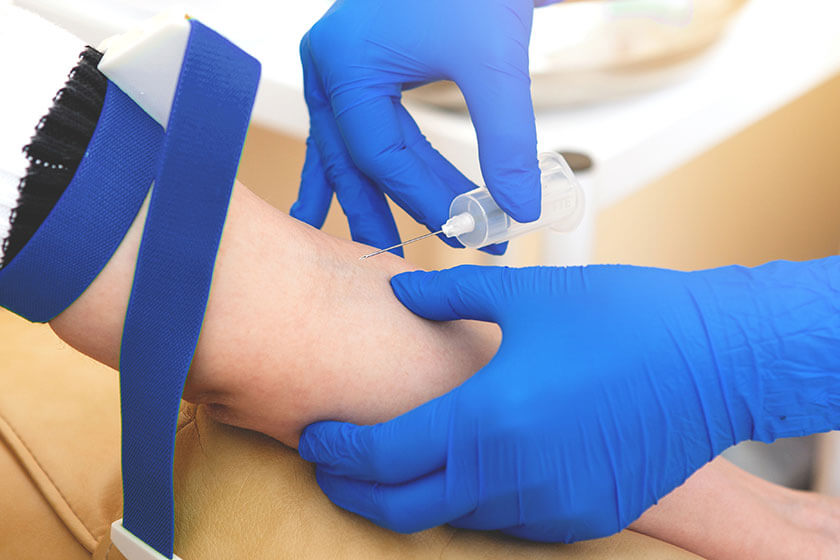02 Sep How to Become a Phlebotomy Technician

If you’re interested in a healthcare job where you work with patients but don’t spend many years in school, becoming a phlebotomy technician might be right for you. Phlebotomists are important because they help doctors by drawing blood and getting it ready for tests. This helps doctors figure out what’s wrong with patients and how to treat them. In this article, we’ll tell you how to become a phlebotomy technician.
What Does a Phlebotomy Technician Do?
Phlebotomy technicians, or phlebotomists, are trained to draw blood from patients for tests, donations, or research. This job is very important in healthcare because it helps doctors understand and treat different health problems. Phlebotomists must carefully draw blood safely and ensure patients are safe and comfortable during the process.
How To Become a Phlebotomy Technician
Educational Requirements
To become a phlebotomy technician, you usually start by taking a course. These are shorter than completing a college degree. Courses like this are available at places like community colleges or technical schools. The courses teach you about the human body, how to draw blood safely, and how to work well with patients. You practice drawing blood in these courses, which is important because it helps you do the job well.
Choosing the Right Phlebotomy Training Program
It’s important to pick a good phlebotomy training course that teaches you everything you need to know. The best courses have good teachers and let you practice a lot. You should also make sure that the school has good reviews and is approved by state education boards. Some places, like Phlebotomy Training Specialists, have courses that past students highly rate.
Certification Process
Even though some states don’t require certification, it’s a great thing to show employers. This shows that you have been tested and know how to do your job well. Being certified can help you find a job more easily and do better in your career.
Gaining Hands-On Experience
Practice is key in phlebotomy. While learning, you must do a certain number of blood draws. Getting these numbers will ensure you practice a lot, which will help you feel confident and ready to work with real patients.
Job Placement and Career Advancement
After finishing your course, you’ll want to begin searching for a job. Sometimes courses offer help with this, like by providing job leads. You can work in hospitals, labs, or other places that need phlebotomists. As you get more experience, you might even move up to lead other phlebotomists or specialize in a certain area.
Continuing Education and Professional Development
Even after you start working, it’s good to keep learning. This makes sure you know the latest ways to do your job well. You can take classes and workshops to keep learning and improving your skills.
The Importance of Soft Skills
Being a phlebotomist isn’t just about drawing blood. You must also be good at talking to people and making them feel comfortable, especially if they’re nervous. Patience, empathy, and attention to detail are helpful skills that will help you give the best care to your patients.
Conclusion
In conclusion, starting a career as a phlebotomy technician will provide critical support in the medical field. With the right education, certification, and approach to patient care, you can thrive in this important healthcare role.
If you want to start learning to be a phlebotomy technician, places like Phlebotomy Training Specialists can help you with great classes and support. Check them out to start your new career!
